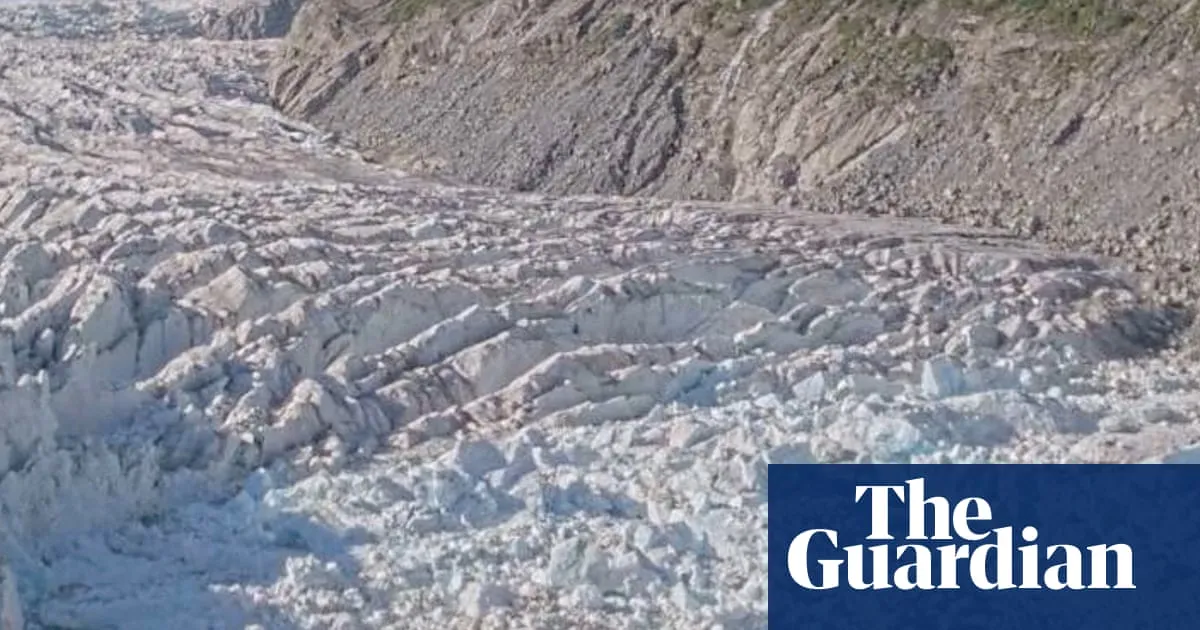
Residents of Juneau, Alaska's capital city, are being urged to evacuate as the area braces for potential record floodwaters from the Mendenhall Glacier. This alarming situation is primarily driven by climate change and the ongoing retreat of glaciers, according to reports from federal agencies.
Summer glacial flooding, classified as a glacial lake outburst flood (GLOF), poses a significant threat to parts of Juneau. The imminent flooding is a result of a combination of rainwater and snowmelt, which is expected to cause the Mendenhall River to crest around 4 PM Alaska time, or 8 PM ET on Wednesday. Authorities have implemented emergency flood barriers in hopes of protecting the Mendenhall Valley, home to the majority of Juneau's 32,000 full-time residents.
As of Tuesday morning, officials confirmed that water has begun to escape from the ice dam, with flooding expected to continue into Wednesday. Some residents within the flood zone have already evacuated, with officials intensifying their warnings, urging people to “Don’t wait, Evacuate TONIGHT.” The National Weather Service (NWS) in Juneau updated its Mendenhall flooding forecast, predicting that the river will exceed 16 feet by Wednesday morning.
Nicole Ferrin from the NWS stated that the flood warning was issued after extensive analysis, complicated by rainfall that has significantly raised both the lake and river levels. A sub-glacial release has also been confirmed. Ferrin emphasized, “This will be a new record based on all of the information we have,” reflecting the growing concerns over climate change.
The Mendenhall Glacier, located north of Juneau, creates an ice dam that holds a meltwater lake in Suicide Basin. Since 2011, annual outburst floods have been common, pouring into Mendenhall Lake and rushing downstream toward Juneau. However, experts warn that the frequency and intensity of these glacial lake outburst floods are increasing due to ongoing climate change.
According to the National Oceanic and Atmospheric Administration (NOAA), Alaska has warmed at twice the rate of the rest of the United States over the past several decades. NOAA's data shows that Alaska's average annual temperature has risen by 3.1 degrees Fahrenheit over the last century, a trend that continues to rise.
Scientists attribute the rapid retreat and thinning of glaciers to the warming climate, with Alaska's glaciers among the fastest melting globally. Rick Thoman, a climate specialist at the Alaska Center for Climate Assessment and Policy, stated, “Without climate change, there is no reason to think that this would be happening on the Mendenhall Glacier, then in the lake, and downriver.”
A significant outburst in August 2023 sent unprecedented volumes of water into Mendenhall Lake, flooding areas that had previously remained dry. The NWS indicated that this event led to considerable erosion, further emphasizing the urgency of the situation.
The Mendenhall Glacier, approximately 12 miles from Juneau, is not only a natural wonder but also a popular tourist attraction. Originally named Sitaantaagu by the Tlingit Indians, it was later renamed in honor of Thomas Corwin Mendenhall, who played a crucial role in determining the boundary between Canada and Alaska. This glacier, a remnant of the little ice age, is now receding at an alarming rate of 100 to 150 feet per year.
As Juneau grapples with the potential for disastrous flooding, the community remains on high alert. The impacts of climate change are becoming increasingly evident, and residents are urged to stay informed and heed evacuation orders to ensure their safety.